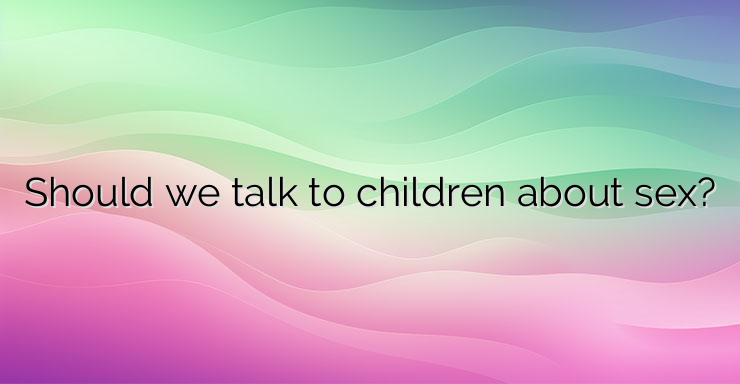With the development of information technology, it is difficult to hide any information from our children, and it even seems to us that they are already “born” learned. One of the sick topics of both parents and the whole society is sex. Unfortunately, all this flood of information that floods us from everywhere often misleads, confuses and leaves completely wrong impressions about the relationship between men and women in children. This makes their education even more difficult. One way or another, Bulgarian society has hardened in this respect and in most families the word “sex” is taboo. This is a mistake, because if we want to protect teenagers from unwise actions, we must take responsibility for informing them. And at the very least, these conversations will bring us closer to the children and create a more harmonious atmosphere at home, built on friendship and trust. According to experts, we should not wait for children to ask us. They may want to know, but are worried and embarrassed to bring up the subject. So the best way is to start talking to them as early as possible. However, many parents don’t know how to get started. A good way is to first examine for ourselves our own ideas and values about sex, and then consider what we want to pass on to our children. NEWS_MORE_BOX Curiosity about sex is a natural step in getting to know the body. Sex education helps children understand and be positive about their bodies. Younger children are interested in pregnancy and babies in addition to sex itself. Discussing sex is also part of open communication between us and our child. Early, honest and open communication between you is very important, especially as he becomes an adolescent. If communication is normal, children are more likely to talk about all the other things related to their growing up – depression, relationships, drug abuse, alcohol and any sexual problems. These conversations are easiest when they come from life experience—like seeing a pregnant woman or a baby. When parents talk to their children about sex, they can be sure that their children are getting the right information. They should be the child’s first source of information about sex. Understanding and receiving accurate information can protect a child from risky behavior as they grow up. Sex education also provides an opportunity to instill family values in children. For example, if you come from a family that believes intercourse should be reserved for marriage, this can be part of discussions about sex. If this has never been discussed before, your child may not adopt this way of thinking. Parents should not rely on the school system to teach sex education. Depending on where you live, it may not be available. If your child does get information about sex from there, check what they actually learned. What the child will learn from friends and from the schoolyard,it could be completely wrong. It can even be dangerous. At the same time, studies show that more children are exposed to sexual images in the media and are more likely to engage in such behavior at an earlier age. Children who receive sex education at home are less likely to engage in risky sexual activity. So turn off the TV and talk!


Leave a Reply